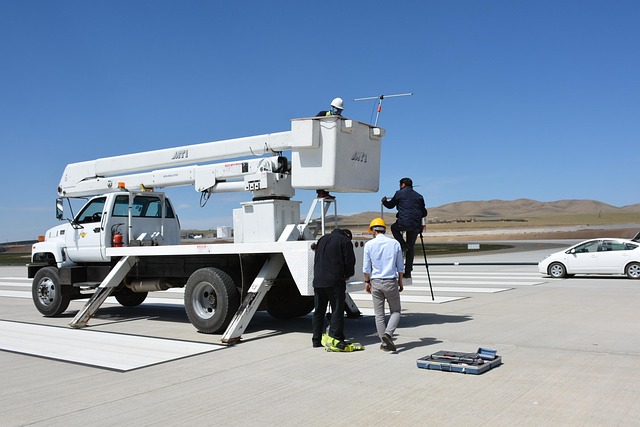Understanding trucking cargo liability is crucial for efficient dispute resolution in the logistics sector. With multiple stakeholders (shippers, carriers, brokers), clear guidelines are essential. This involves proper packaging and documentation by shippers, secure transportation and insurance by carriers, and adherence to regulations. Meticulous documentation, evaluation of claims, and open communication among all parties (shippers, carriers, freight forwarders, insurers) ensure fair assessments and faster resolutions. Alternative Dispute Resolution (ADR) techniques like mediation and arbitration offer cost-effective solutions compared to traditional litigation for trucking cargo liability cases.
Resolving disputes over cargo loss or damage claims is a critical aspect of the trucking industry, ensuring fairness and maintaining operational efficiency. This article delves into the effective management of these claims, starting with a solid understanding of trucking cargo liability. We explore best practices in documenting and evaluating claims to guarantee accuracy and validity. Through effective communication and collaboration, stakeholders can streamline processes. Additionally, we introduce Alternative Dispute Resolution (ADR) techniques, offering efficient solutions for settling cargo loss or damage claims, with a focus on minimizing costs and maximizing satisfaction across all parties involved.
Understanding Trucking Cargo Liability: A Foundation for Dispute Resolution

In the complex world of logistics, understanding trucking cargo liability is paramount for efficient dispute resolution. When goods are transported by truck, several parties—shippers, carriers, and brokers—are involved, each with distinct roles and responsibilities. Establishing clear liability guidelines forms the foundation for effective conflict management. Trucking cargo liability refers to the legal responsibility borne by each stakeholder in case of lost or damaged goods during transit.
This liability encompasses various factors, including carrier agreements, insurance policies, and regulatory frameworks. Shippers must be aware of their rights and obligations, such as proper packaging and documentation, while carriers are accountable for safe transportation and maintaining adequate insurance coverage. A solid grasp of these liabilities enables all parties to navigate disputes constructively, ensuring fair compensation for any losses or damages incurred during the trucking process.
Documenting and Evaluating Claims: Ensuring Accuracy and Validity

Effective dispute resolution in trucking cargo liability begins with meticulous documentation and evaluation of claims. When a loss or damage occurs, it’s crucial to gather all relevant information promptly. This includes detailed descriptions of the damaged goods, photographs capturing the extent of the harm, and comprehensive records of the incident. Every step taken should be documented to ensure accuracy and validity, as these pieces of evidence play a pivotal role in supporting the claim.
Accurate documentation helps establish a clear timeline of events, enabling a fair assessment of liability. By reviewing these records, claims assessors can verify the authenticity of the claim, ensuring that compensation is awarded appropriately. This process requires careful attention to detail and a thorough understanding of trucking cargo liability regulations to reach just outcomes for all parties involved.
Effective Communication and Collaboration Between Stakeholders

Effective communication and collaboration are vital in resolving disputes over cargo loss or damage claims, especially in the context of trucking cargo liability. All stakeholders—shippers, carriers, freight forwarders, and insurance companies—must actively engage in open dialogue to ensure a comprehensive understanding of the incident. This includes promptly sharing relevant documentation, such as bills of lading, shipping manifests, and photos of damaged goods.
Clear and transparent communication helps in accurately determining liability, facilitating faster claim processing, and ensuring all parties are aligned with the resolution strategy. Collaborative efforts also encourage the development of proactive measures to prevent future incidents, enhancing the overall efficiency of the supply chain and reducing potential losses for all involved.
Alternative Dispute Resolution (ADR) Techniques for Efficient Cargo Loss or Damage Claims Settlement

In the realm of trucking and cargo liability, efficient resolution of disputes over loss or damage claims is paramount for maintaining smooth business operations. Traditional litigation can be time-consuming and costly, often leading to prolonged resolution times and increased expenses. Alternative Dispute Resolution (ADR) techniques offer a more streamlined approach, facilitating faster and cost-effective settlements without the formality of court proceedings.
Methods such as mediation and arbitration have proven particularly effective in ADR for cargo loss or damage claims. Mediation brings together claimants and defendants to negotiate a mutually agreeable resolution with the aid of a neutral third party. This process encourages open communication, fosters understanding, and often results in creative solutions that may not be possible through traditional litigation. Arbitration, on the other hand, involves submitting the dispute to a neutral arbitrator who makes a binding decision. This structured yet flexible approach allows for faster resolutions while still ensuring fairness and accountability, making it an ideal option for managing complex trucking cargo liability cases efficiently.
Resolving disputes over cargo loss or damage claims is a complex process, but with a solid understanding of trucking cargo liability and effective communication strategies, stakeholders can achieve efficient settlements. Documenting and evaluating claims accurately ensures fairness and validity, while alternative dispute resolution (ADR) techniques provide cost-effective and swift solutions. By implementing these practices, the industry can foster better relationships between carriers, shippers, and brokers, ultimately strengthening the foundation of trucking cargo liability and dispute resolution.
